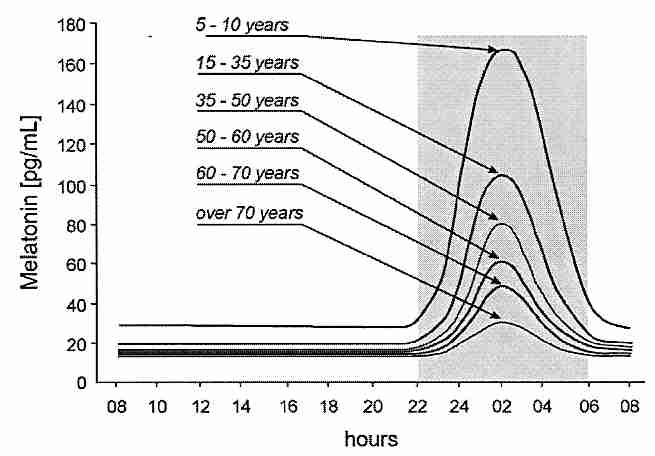Posted 20 June 2013 - 12:28 PM
If you want to mimic the body's natural hormonal cycle of melatonin levels don't use time release. It's a good way to disrupt your circadian rhythms which shortens lifespan in rodent studies. OF course if you have electric lights and watch TV or use a computer at night, they are probably already disrupted.
Lower doses are better if you want to sleep. 2, 3 and 5 mg doses send blood levels much higher than anything that occurs naturally withing an hour, and in about four hours levels plunge well below daytime baseline. Most people wake up and can't get back to sleep at this point. It's a good way to disrupt your circadian rhythms. (If I have time, I'll try to find the post from several years ago with a summary and link to the pharmokinetic study where I am getting this information.)
Depending on body weight, if one wants to restore or reinforce one's circadian rhythm, and get 'natural' sleep, doses between 300 and 600 micrograms would be ideal. The Life Extension Foundation (LEF) makes a 300 mg pill, as does Rexall Sundown - the latter is available in many pharmacies, or online at Amazon and elsewhere. An additional advantage to this one is it can be taken sublingually, hence faster acting. There are also one milligram tablets from different vendors, which can be cut with a pill-splitter.
If you are looking for other effects than reinforcing your natural circadian rhythms, then there is no generic answer which is best: you're on your own. You have to infer a dose from whatever study deals with the effect you are seeking. Melatonin is supposed to be a super anti-oxidant and to have cancer preventing properties, and the marketers of melatonin pills make these claims repeatedly, but there is no established protocol for such use that I am aware of, and other substances are also said to have such properties. Carbon-60 in olive oil for anti-oxidant action in the lipid layer of one's cells, or reishi spoor oil for anti cancer properties, to name two (not claiming efficacy, just mentioning two that are currently popular for such purposes.)
In short, time release melatonin is a bad idea.
-
 like x 2
like x 2
-
 dislike x 1
dislike x 1





























































